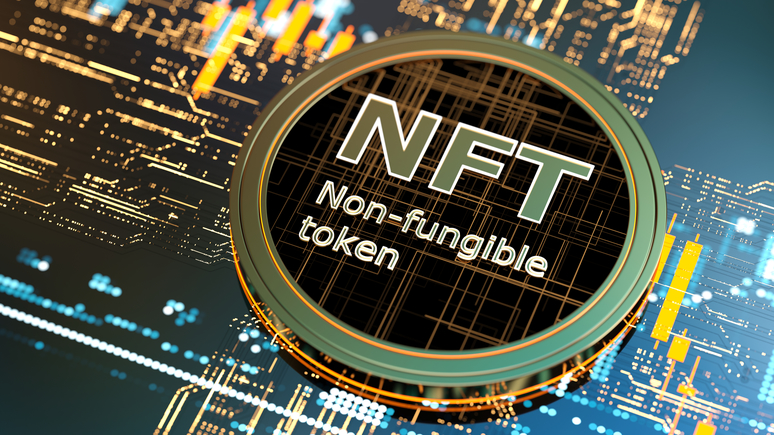January 28, 2022
What Are NFTs and What Do They Mean For Investors?

In February 2021, a collage of 5,000 images sold at a Christie’s auction for an eye-watering $69.3 million. What was so stunning was not just the price - among the highest ever for a work by a living artist, 40-year old Mike Winkelmann, professionally known as Beeple - but that the work itself was not in physical form. It was a digital fragment known as a non-fungible token, or NFT.
NFTs are digital proofs of ownership. They can be used to tokenise almost any unique asset, such as art, collectibles, even real estate. They can only have one official owner at a time and they're secured by a blockchain. That means no one can modify the record of ownership or copy/paste a new NFT into existence.
This solves two major problems that have faced digital versions of assets in the past: scarcity and authenticity. It used to be that digital versions of assets could spread all over the Internet with no way of tracing their ownership. But once an asset is minted as an NFT, ownership is traceable and verifiable. Assets can be sold whole, sliced into smaller assets, or made into multiple editions.
What Can Be Turned Into an NFT?
Just about any unique digital asset can become an NFT, and that can even include digital representations of real-world items. Here are some current and emerging use cases:
- Art: A series of multi-million dollar art sales have grabbed the most attention so far. In the world of music, Kings of Leon were the first to release an NFT album, and many others are now experimenting with new ways to monetize and engage with fans.
- Collectibles: NBA Top Shots is a leader in this space, creating a platform for selling game highlight video clips as NFTs. Imagine being able to slice up the entire NBA video library into collectible clips that sell for up to $100,000 each.
- Gaming: Millions of players already buy digital goods inside of video games, such as weapons, characters and levels. These players are now primed to purchase and play to win NFTs in the gameworld.
- Fashion: In 2021 Dolce & Gabbana sold NFT buyers a nine-piece collection that bundled 4K rendered animations of outfits along with physical clothing and access to exclusive events for $5.6 million.
- DeFi: Since NFTs are assets, decentralized finance (DeFi) apps can enable them to be used in many of the same ways as traditional assets, such as pledging them as loan collateral, trading them on secondary markets and even creating derivatives markets.
- Events: Imagine a concert ticket in the form of an NFT that comes with an original piece of art and an entry code for your backstage pass, plus it automatically pays the artist, the venue and the crew without the need for middlemen.
- Metaverse: NFTs can act as currency and proof of ownership in a virtual world. The art on a virtual wall, the deed to a virtual property, the pass to a virtual conference, and the chip at a virtual casino.
- Physical assets: NFTs tied to physical assets are an emerging frontier. Imagine being able to trade NFTs representing rare wine or an exotic car without actually having to ship or store the physical asset.
Owning an NFT does not necessarily mean you’re the only person who can enjoy the work. Someone else can still take a screenshot of your $69.3 million art purchase. But only you own the original work and the blockchain history of the purchase proves it. Simply put, many people may have a Mona Lisa poster, but there is still only one original.
What do NFTs Mean For Investors?
Investors can participate in NFT auctions, trade in the secondary market, and line up for much-hyped launches of newly-minted NFTs. For example, Nike acquired an NFT studio and their virtual shoe “drops” could end up being just as collectible as the ones you actually wear.
For those seeking a more diversified approach, investing in Ethereum, the blockchain that powers most NFTs, is an option. If you believe that the blockchain will continue to revolutionise significant areas of our economy, then you might view owning ether as analogous to buying railways in the early days of the industrial revolution.
Learn more about Ethereum and how we’re making it affordable and accessible for every investor.
About the Author
Galaxy Asset Management LP is a diversified investment subadvisor with a team of long-tenured institutional experienced professionals managing third-party capital across traditional and alternative asset classes, with strong relationships and connectivity in the digital asset, cryptocurrency and blockchain technology sector.
IMPORTANT DISCLAIMERS
The opinion and information provided in this discussion are solely those of the speaker(s) and are not to be used or construed as personal, legal, accounting, taxation or investment advice, or as an endorsement or recommendation of any entity or security discussed or provided by CI Global Asset Management. Individuals should seek the advice of professionals, as appropriate, regarding any particular investment.
